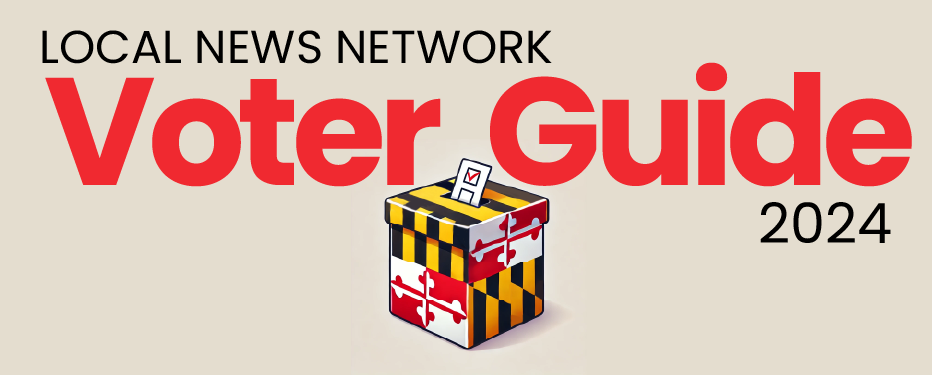Tierney Davis
Running for school board in Cecil County District 2
How old will you be on Election Day (Nov. 5)?
59
Are you currently employed? If so, where, and what is your job title?
U.S. Department of Homeland Security.
What is the highest level of education that you completed, and where did you get that degree?
Candidate did not respond to this question.
Why are you running for the school board?
I am running for re-election because I am truly dedicated to the students of Cecil County Public Schools and my community.
I believe I have done a good job the past four years in advocating for our students and always making decisions that I thought were in the best interest of the 15,000 students at our 29 schools.
I volunteer and mentor students at various elementary schools in Cecil County because I believe in giving back to my community, and in my opinion, school board members should be education ambassadors to our respective communities.
What makes you a good candidate for the board?
I have strong leadership skills as a veteran of the United States Air Force as well as a 30-year career as a federal employee of the Department of Homeland Security.
I am a consensus builder and a problem solver who has a long history of working well with others to solve complicated problems.
Members of the Board of Education should be problem solvers and critical thinkers who not only identify problems but bring potential solutions for board consideration.
My background, life experience, education and attention to detail provide me with valuable insight that informs my decisions as a board member.
What is the most important issue facing your school board and what would you do about it if elected?
The most important issue(s) facing Cecil County Public Schools, as well as many schools across the state and our country, are multi-layered and include student safety, mental health, bullying (cyber), student/teacher ratio in the classroom and student academic achievement.
If re-elected, I will continue to advocate for improvement and added focus on these important areas of concern.
I will also work with the Cecil County Public Schools superintendent of schools and his leadership team to ensure accountability for student success.
Please name a public leader you admire and explain why.
A public leader who I truly admire is the current Maryland Gov. Wes Moore.
He is not only a patriot and a great leader, but he also has an inspiring life story that many of our students and young adults will be able to relate to.
After reading the governor’s life story, I found a common bond between us, because I also come from humble beginnings that forced me to make adjustments early in life, but through the grace of God and a strong mother and grandmother in my life, I was able to reach goals I never thought were possible.
The Blueprint for Maryland’s Future, passed by the General Assembly in 2021, is a 10-year plan that includes increased education funding to support early childhood education, increased teacher starting pay, college/career-readiness standards for high school graduates, and expanded services to multilingual and impoverished families, among other goals. Please tell us your views on the Blueprint and how it will affect your school district.
Overall I agree that the Blueprint is a transformational idea that is well intended and put in place to provide equity in the education system in the state of Maryland.
However, there are legitimate issues with implementation of the five pillars and the associated costs.
Fair-minded people can disagree on the Blueprint; however, some of the mandates may have to be changed because a one-size-fits-all approach is not sustainable for the majority of the 24 districts in the state.
The most difficult pillar to implement in my district would likely be raising teacher salaries across the board by June 2026, even though I strongly believe they deserve the increase to stay competitive in today’s society.
Some school districts nationwide are placing new limits on the use of cellphones in middle and high schools. What do you think should be the policy on student use of cellphones in your district, and why do you support that policy?
The vast majority (72%) of high school teachers say that cellphone use is a major distraction in the classroom.
I agree that cellphone use at school is a major problem in high schools across the country, and the policies that have been implemented to curtail cellphone use have been difficult to enforce the majority of the time.
Students come to school to learn, and technology can sometimes get in the way of the learning experience.
Are you satisfied with your school district's efforts to ensure the safety of its students? What, if anything, should be done to improve school safety in your district?
My school district has done a good job in providing security mechanisms at each of the 29 schools, but unfortunately schools continue to be a soft target for those who have the propensity to engage in violence.
I believe that our students and their families should feel that a school is a trusted and safe environment.
It is hard to learn when you have to spend time worrying about school violence.
Administrators and school officials should do everything within their power to safeguard our schools and provide a level of security for everyone on school grounds.
Do you think there are circumstances when books should be removed from school libraries? If so, what kind of books should be removed, and who should make those decisions?
I believe in the Freedom to Read Act that was passed in the state of Maryland, which calls for school systems to create a procedure to review book titles that may be challenged but must remain available on the bookshelves during the process.
A large majority (60%) of parents trust school librarians to choose appropriate books for the collections they oversee and to recommend age-appropriate material to our children.
At the same time, most parents also think that school librarians should require parent permission before children check out certain books, and that there should be age restrictions on certain material.
However, I believe that ultimately the decision on books is nuanced and should be a partnership with parents, the community and the Board of Education.
Some school districts enact policies allowing transgender and gender nonconforming students to use their preferred pronouns while at the same time not informing those students' parents about that decision. What is your opinion of such policies?
I believe in parental input on all decisions that affect our students, particularly young children who may not fully understand the ramifications of their decisions.
Proven data shows that students are vastly more successful in school when their parent(s) are involved in their education and show an interest in the decisions that they make.


